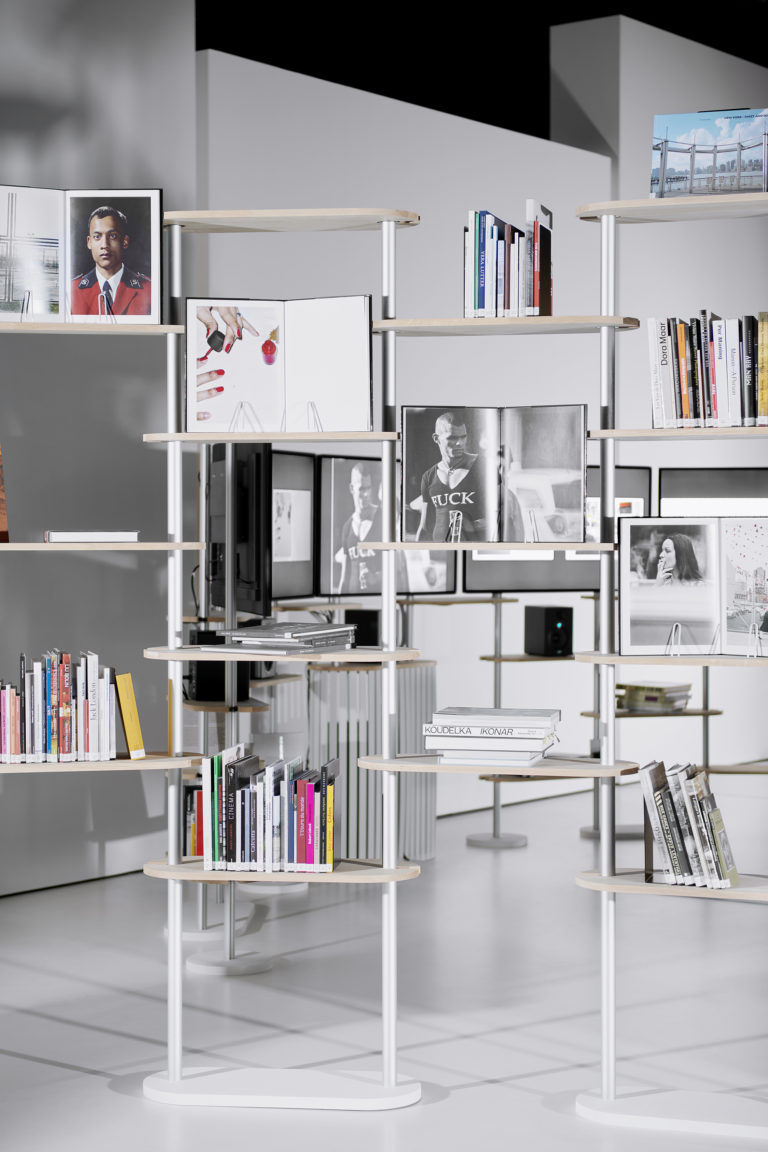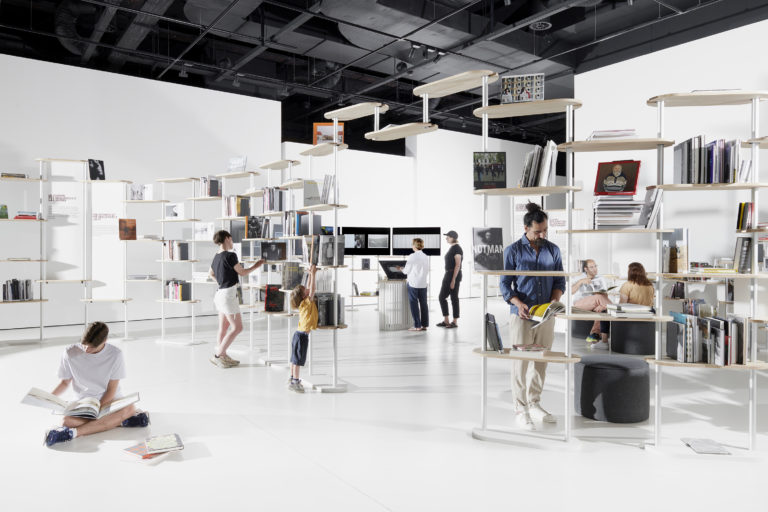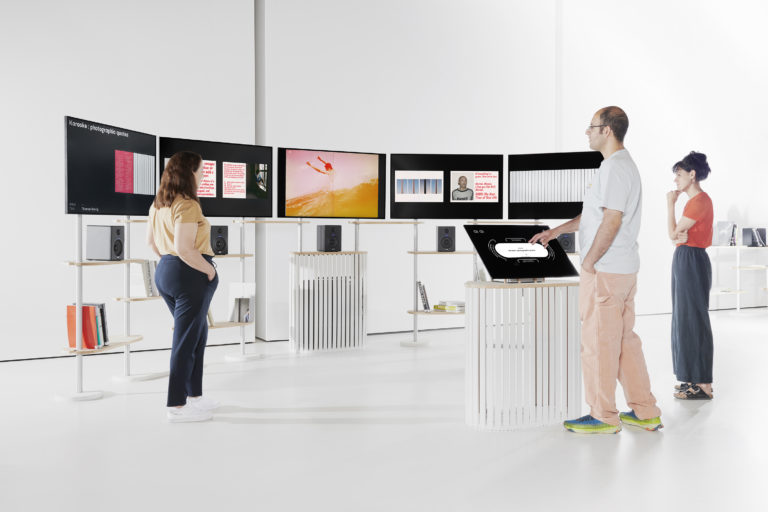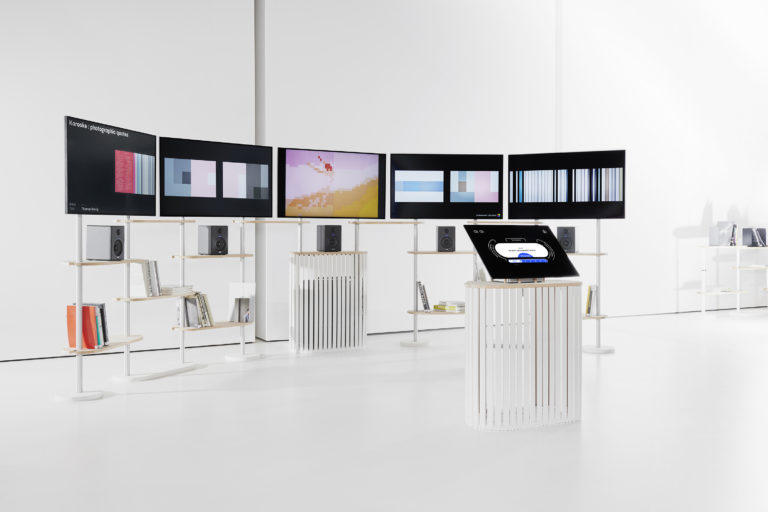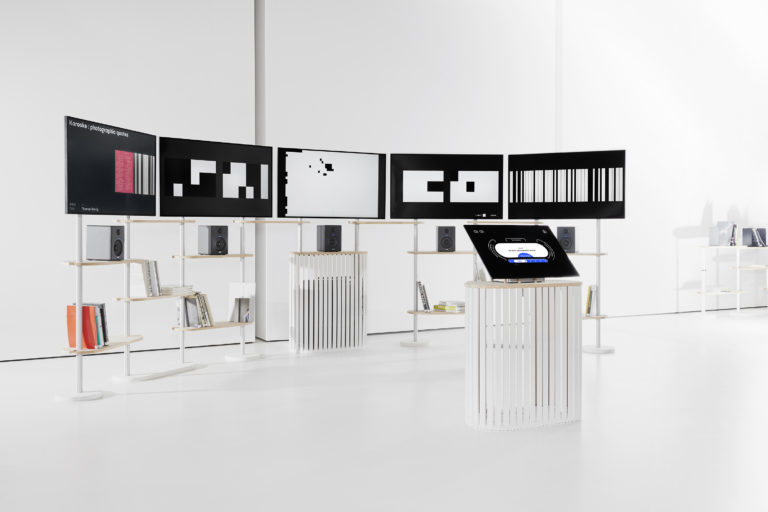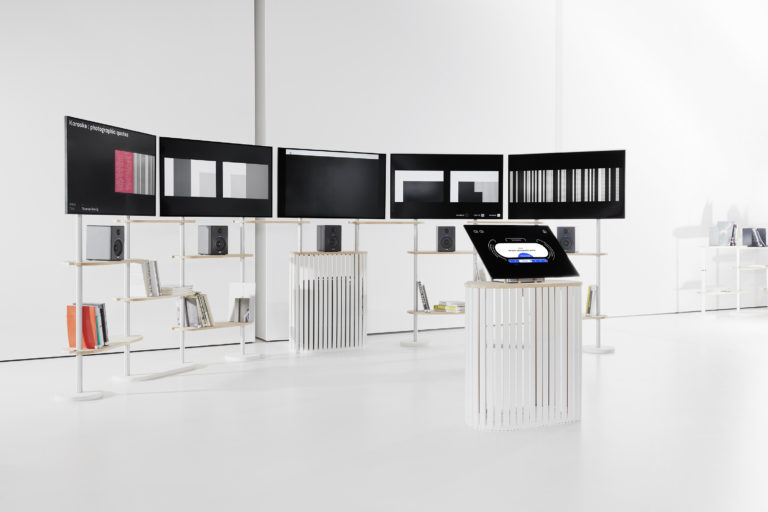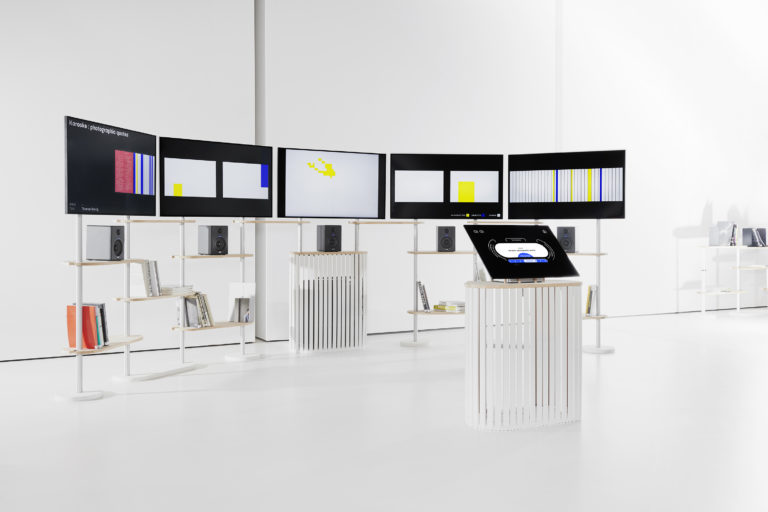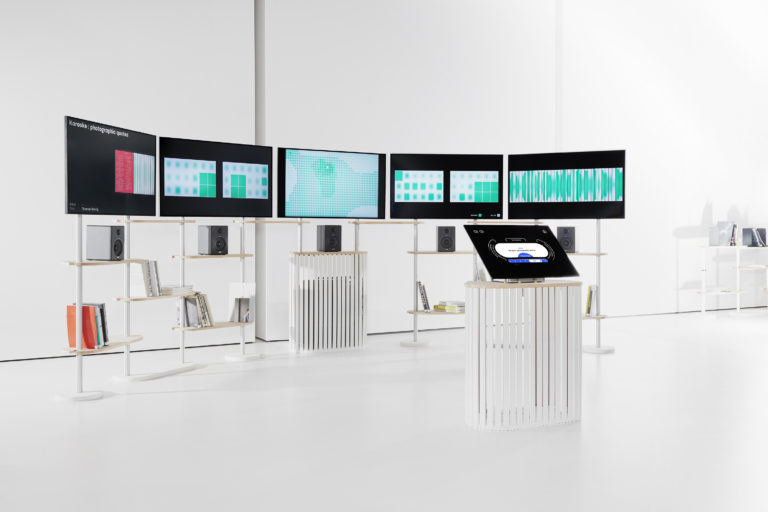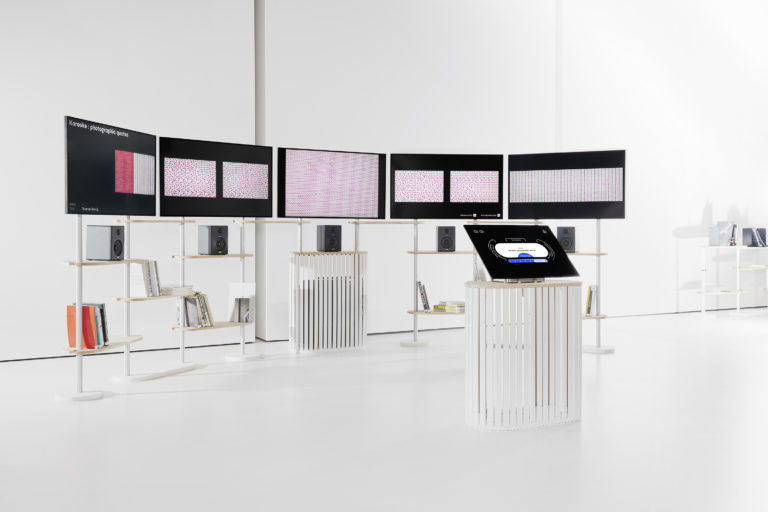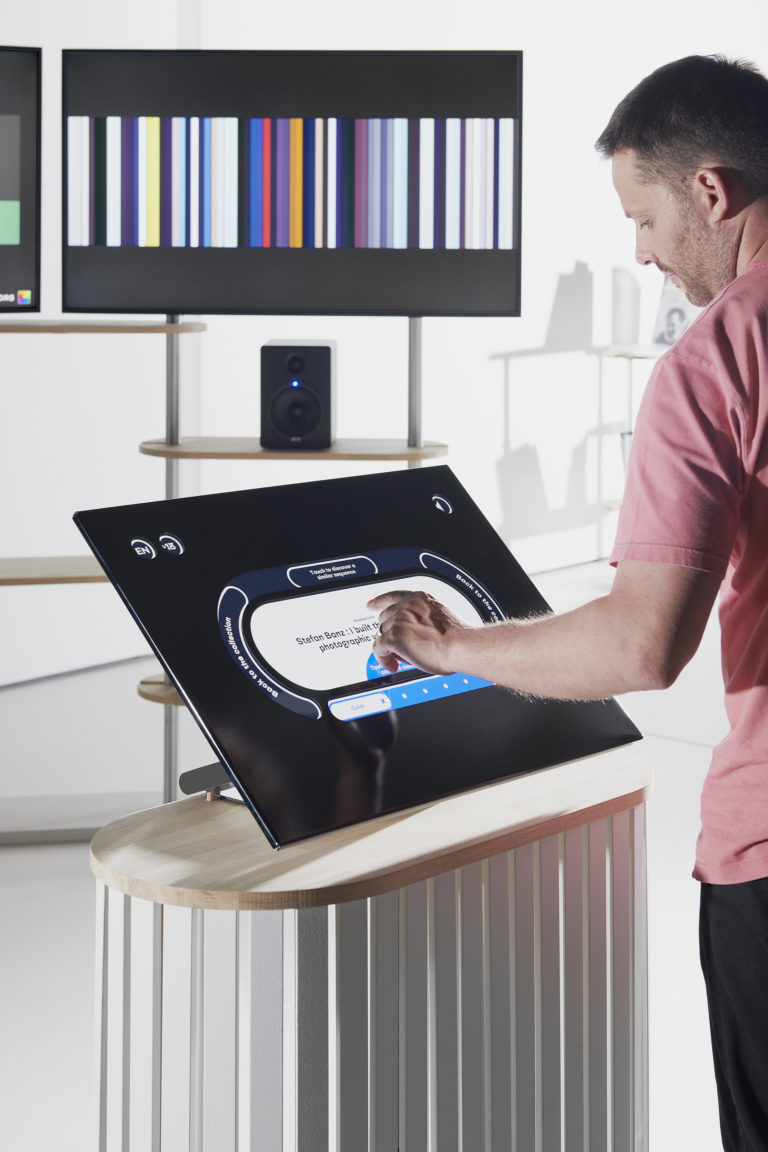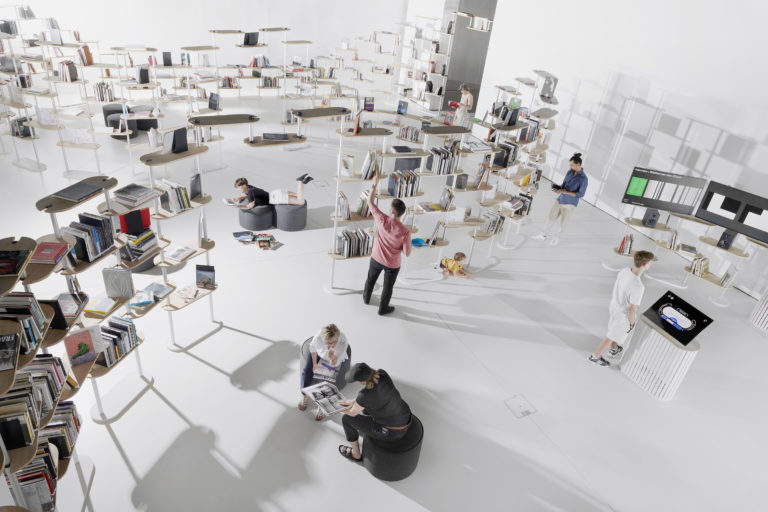Open Books
As tech companies strive to show that artificial intelligence can compete with humans, the EPFL+ECAL Lab explores how this technology can instead serve culture and stimulate our perception. Taking an experimental approach, the design research centre has developed a new interactive and immersive installation in partnership with Photo Elysée. Open Books – Livres ouverts invites the public to immerse themselves in the rich world of photography books.
In addition to its internationally renowned photographic archive, Photo Elysée owns a collection of over 25,000 photography books. These publications are essential to contextualise a photographer’s work, while often introducing a narrative dimension. But how can we reveal the existence of these books and present their content and special features to a wide audience without endangering their existence? Building on its previous work to define how artificial intelligence can open the doors to little-known cultural universes, the EPFL+ECAL Lab tackled this challenge in a collaboration with the Lausanne-based museum.
Part of a programme dedicated to experimenting with new forms of exhibition in order to bring back to life large cultural heritages, this research project combines artificial intelligence and design research. Developed in partnership with Photo Elysée, Open Books – Livres ouverts is structured around three main themes:
- Revealing the specific features of books by analysing visual characteristics such as colour, light and the regularity in the sequences of images.
- Fostering the discovery of books and authors by creating bridges between works, based on their similarities, particularly in the sequences of images.
- Reinforcing the perception of content, through a synesthetic experience, i.e., one that stimulates several senses. Thus, the profound nature of the photography book emerges in the form of visual signs and sound traces.
The installation Open Books – Livres ouverts approaches the photography book by highlighting the sequences created by the succession of pages. Five screens offer a panoramic view of the content. The interface reveals the particularities of these sequences, such as the dominant colours, the light, the position of the subjects in the image, whether they are living or simple objects, the blur or the visual regularity that animates the pages. The recommendation tool encourages users to discover other works by going through a similar sequence, according to the highlighted features. Within the multidisciplinary team of the EPFL+ECAL Lab, designers, engineers and psychologists worked closely together throughout this research project, from the concept to the final execution. The work also involved other EPFL laboratories, in particular the Computer Vision Laboratory. It also builds on a previous collaboration between the Digital Humanities Laboratory, the start-up Volumen and the museum, which established the strategies and tools for digitising the publications.
For this first presentation of Open Books – Livres ouverts, the EPFL+ECAL Lab, in collaboration with Photo Elysée, has designed an immersive journey that begins with the presentation of photographic sequences in giant format. It continues with an immense library with bookshelves undulating over some fifty metres. Here, the museum has placed almost 2,000 photographic books, accessible to all. Some of the books are displayed open, to expose their visual characteristics and to echo the digital exploration on offer. Finally, the interactive installation, the fruit of this long-term project, offers visitors the chance to travel to the heart of the books and discover these sequences of images in a whole new light.
The installation was exhibited at Photo Elysée in Lausanne, from June 30 to October 1, 2023.
Curation
Manuel Sigrist, Photo Elysée
Nicolas Henchoz, EPFL+ECAL Lab
Art Direction & Project Management
research assistant
Scenography & Product Design
Béatrice Durandard in collaboration with Yann Mathys
Engineering & Technology Manager
Software Engineering
Gabriel Luthier, Yves Kalberer, Ovidiu Olenici, Mateja llic
Sound Engineering & Design
UX Psychology
Dr Andrea Schneider, Dr Sebastian Baez Lugo with assistance of Sofia Viola and Renée Favre
Preliminary Investigations
In collaboration with
Dr Mathieu Salzmann, MER, Computer Vision Laboratory (EPFL)
Pr Frédéric Kaplan, Director, College of Humanities (EPFL)
EPFL Semester Projects
André Langmeier, Computational Science and Engineering
Jean-Daniel Rouveyrol, Communication Systems
Photo Élysée Library
Ilhame Benboubker, Stéphane Mocan
Photography credits
© EPFL+ECAL Lab / Matthieu Croizier


